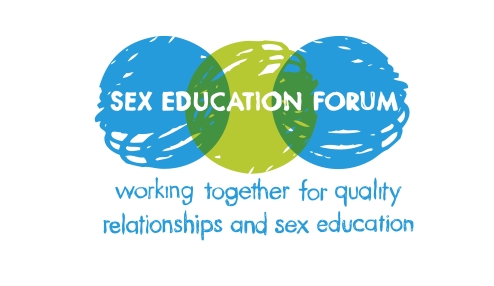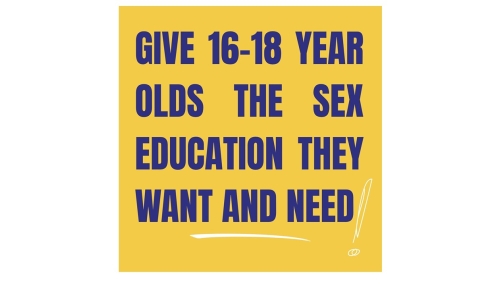Updated Government guidance on Relationships Education, RSE and Health Education has been revised following consultation. MPs voted on it on Wednesday 20 March 2019, and the guidance was finalised in July 2019. Here are some answers to questions we've been asked.
What does the new Relationships Education cover?
Relationships Education in primary schools will cover ‘Families and people who care for me’, ‘Caring friendships’, ‘Respectful relationships’, ‘Online relationships’, and ‘Being safe’.
There is widespread agreement that children need to be able to recognise abusive behaviour and to know how to seek help if they are worried about abuse or experience it. The new guidance states that by the end of primary school all children should know: ‘how to report concerns or abuse, and the vocabulary and confidence needed to do so’.
The Sex Education Forum believes that Relationships Education should promote equal, safe and enjoyable relationships and be taught in a way which fosters LGBT and gender equality, in line with the Equalities Act 2010. The new guidance is compatible with this.
What is covered in sex education?
In the new guidance DfE continues to recommend that all primary schools ‘have a sex education programme tailored to the age and the physical and emotional maturity of the pupils. Schools are to determine the content of sex education at primary school. Sex education ‘should ensure that both boys and girls are prepared for the changes that adolescence brings and – drawing on knowledge of the human life cycle set out in the national curriculum for science - how a baby is conceived and born’.
Health Education will be mandatory in all primary schools in England (except Independent Schools who have separate requirements on PSHE education as per the Independent Schools Standard) from September 2020. Health Education includes a section for primary and secondary schools on puberty, the changing adolescent body, menstrual wellbeing and the menstrual cycle.
Relationships Education, Health Education, science and sex education work together to protect children by ensuring they have knowledge of their bodies, the human life-cycle, emotions, acceptable behaviour and right and wrong.
Will schools need to have their own policy for RSE?
Yes. Primary schools must have a written policy on Relationships Education and sex education if choosing to teach it. Secondary schools must have a written policy on RSE. Schools must consult parents in developing and reviewing their policy and should ensure the policy meets the needs of pupils and parents and reflects the community they serve. School must provide a copy of the policy free of charge to anyone who asks for one and should also publish the policy on the school website.
The policy must:
- Define the subjects being taught (Relationships Education, RSE, sex education)
- Set out the subject content, how it is taught and who is responsible for teaching it
- Describe how the subject is monitored and evaluated.
- Include information to clarify parental right to request their child is excused
The Sex Education Forum define Relationships and Sex Education (RSE) as learning about the emotional, social and physical aspects of growing up, relationships, sex, human sexuality and sexual health. It should equip children and young people with the information, skills and positive values to have safe, fulfilling relationships, to enjoy their sexuality and to take responsibility for their sexual health and well-being.
Do parents want schools to teach RSE?
Most parents are very supportive of schools providing Relationships and Sex Education, and also want to play a part in educating their children at home.
- 78% of parents want primary schools to teach their children about the difference between safe and unwanted touch and how to speak up if someone treats them inappropriately, 11% did not want primary schools to teach this and 11% ‘did not know’ (Independent poll of 1000 parents, Sex Education Forum, 2014).
- 72% of parents think primary schools should teach children about what to do if they find pictures showing private parts of the body online or are asked to send them. (Independent poll of 1000 parents, Sex Education Forum, 2014).
- 92% of parents support the teaching of PSHE education (which includes lessons about staying safe from abuse) in all schools (YouGov poll, PSHE Association, 2016)
Young people say that school is their preferred first choice for RSE, followed by their parents, but currently many parents are falling short in providing RSE at home:
- For boys, the main source of sex education while growing up is school (39%), followed by friends (24%), with fathers accounting for 3% and mothers 4%.
Effective RSE is a partnership between parents and schools. Parents need to be given adequate information about what is taught and when. School-home communication about RSE should start early so that parents can anticipate topics covered at school and make their own timely input or follow up at home.
The Sex Education Forum believe that parents have just as much right to expect good quality teaching in RSE as in other subjects. 80% of parents think RSE teachers should be trained to teach it (Independent poll of 1000 parents, Sex Education Forum, 2018).
What can parents withdraw their child from?
Parents will retain the right to withdraw their child from sex education at primary and secondary school. A change brought in by the new guidance is that young people can opt into sex education from 3 terms before their 16th birthday. Parents will not have the option to withdraw their children from Relationships Education or Health Education. Schools are advised to keep a record of the process of dialogue with parents relating to requests to withdraw from sex education.
How can schools involve parents?
Involving parents is integral to the new guidance. Paragraph 41 states that ‘Schools should ensure that parents know what will be taught and when, and clearly communicate the fact that parents have the right to request that their child be withdrawn from some or all of sex education delivered as part of statutory RSE.’
The guidance provides a reminder that ‘many schools build a good relationship with parents on these subjects over time – for example by inviting parents into school to discuss what will be taught, address any concerns and help support parents in managing conversations with their children on these issues’.
To start fresh dialogue, schools might consider running a short survey with parents, asking if there are aspects of RSE that they’d like help with at home, and what aspects they see as a priority for school to cover.
For further updates Join our Countdown




Share